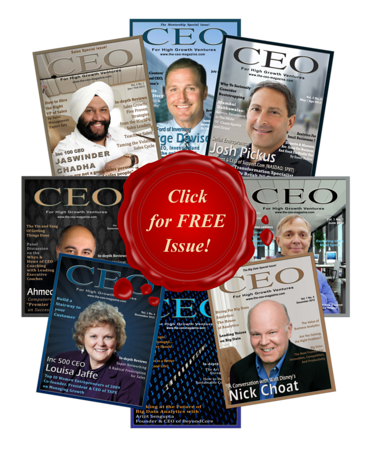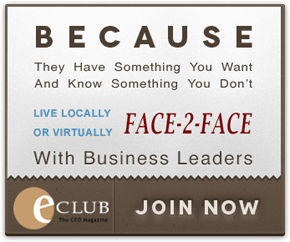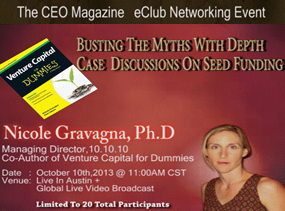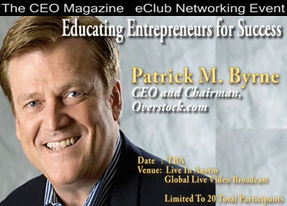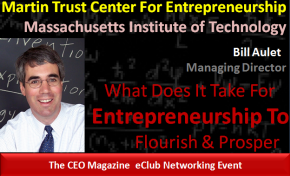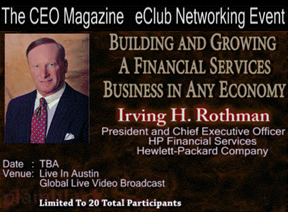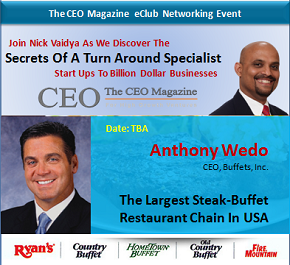You are here
- Guest Blogger |
- Strategy - Marketing |
- Tue, 08/13/2013 - 21:08

Scott McKain
The more I research it, the more obvious it becomes. Bad businesses – regardless of the industry or size, from Wall Street to Main Street – do not have customers who are raving fans. How do you connect with customers in a profound manner, regardless of the size of your business? You have to create distinction in your marketplace.
In my recent book, I first outline three destroyers of differentiation – the insidious aspects that pull you and your organization back to the pack of bland similarity. These Destroyers apply to every industry.
Destroyer #1: Copycat Competition. If we are competitors, and I perceive you have an edge, my knee-jerk response is to imitate it. You try to make certain that I develop no advantages, as well. This means we appear – from the customer’s perspective – to be nothing more than mirror images of each other, meaning price can become a primary differentiator. Another unfortunate result is that we eventually pay more attention to competitors than customers.
Destroyer #2: Tougher Competitors. Just as the interstate highways brought fast-food retailers to countless communities, the Internet is connecting your competition to your customers’ desktops, laptops, and (with smartphones) even their pockets – a phenomenon for which you may not be prepared.
Destroyer #3: Familiarity Breeds Complacency. Unlike my mom’s line about it breeding “contempt,” the fact is that the more accustomed your customer is with who you are and what you do, the more likely they are to simply take you for granted.
Four Cornerstones of Distinction. You have to take it to an even higher level to achieve profound results. That level, distinction, is earned when you become what my friend, author Joe Calloway, calls a “category of one.” There are four cornerstones of distinction that seem basic, yet are breathtakingly difficult to execute:
Cornerstone #1: Clarity. I’m endlessly amazed at how few organizations and professionals can state precisely what their advantage is in the marketplace. They try to be all things to all prospects, or they just keep doing what they’ve always done. Two important points: First, if everyone else in your industry is citing a similar advantage (i.e., great customer service), then it is not a point of distinction. It’s the baseline industry standard.
Second, you cannot differentiate what you cannot define. If you cannot describe to your customer where your flag is planted in the ground, how in the world can they understand why they should choose you over a competitor? Be focused. Be precise.
Cornerstone #2: Creativity. Distinctive organizations are not creative across all aspects of the company. Instead, they have delineated all possible points of customer contact, and turned a single point into a creative advantage.
Enterprise Rent-A-Car rents identical automobiles as their competition – the difference, as we know, is in how the customer obtains their product. Elsewhere, we go to them to get the car. At Enterprise, they pick you up –a small point of creativity that created the largest rental car company in the country.
Cornerstone #3: Communication. Change how you relate to customers and employees. The vast majority of today’s consumer base was taught the alphabet, not from the disciplined rote and repetition of olden days, but instead through engagement with stories featuring characters like Bert & Ernie and Barney. What does that mean? Simply that we are enthralled by – and remember – compelling narrative infinitely better than an endless recitation of facts and figures.
Need help in crafting your organization’s story? Find a creative writing course at a local college and enlist multiple students or faculty. Just as you’d get a second opinion on a medical issue, it never hurts to review several perspectives on your communication.
Cornerstone #4: Customer Experience Focus. Distinctive organizations and professionals transcend transaction. They realize relationships are more important than a single sale. It’s not merely customer service. It’s providing some kind of connectivity that touches prospects and customers personally and emotionally.
Happy customers promote your business to a lot of other prospects, colleagues, and friends. If you seek to stand out and move up, regardless of what your competition is doing, execute strategies that will enhance your distinction and create the kind of customer engagement and experience that makes you an extraordinary resource – and your competitor irrelevant – to the marketplace.
About the Author
 Scott McKain (www.scottmckain.com) is an internationally-renowned expert who helps organizations create distinction in every phase of business. He is also widely-known for his years of instruction and speaking on how to deliver an “Ultimate Customer Experience®.” He is the author of the best-selling books Collapse of Distinction and Create Distinction: What to Do When “Great” Isn’t Good Enough to Grow Your Business.
Scott McKain (www.scottmckain.com) is an internationally-renowned expert who helps organizations create distinction in every phase of business. He is also widely-known for his years of instruction and speaking on how to deliver an “Ultimate Customer Experience®.” He is the author of the best-selling books Collapse of Distinction and Create Distinction: What to Do When “Great” Isn’t Good Enough to Grow Your Business.
McKain’s unique combination of vast speaking experience (he is one of <150 living members of the Professional Speakers Hall of Fame), cutting-edge information and marketing savvy (Social Media Marketing Magazine recently recognized him as one of the fifty most influential marketing authors on Twitter) has kept him positioned him as one of the world’s most sought-after speakers.
Comments
Follow The Blog
Blog Categories
- Business Ops. (45)
- Editors (3)
- Entrepreneurship (196)
- Finance (25)
- Leadership (529)
Blog Authors
- Guest Blogger (835)
- Cynthia Kay (92)
- Linda Henman (78)
- Dianna Booher (46)
- Craig Ross (31)


